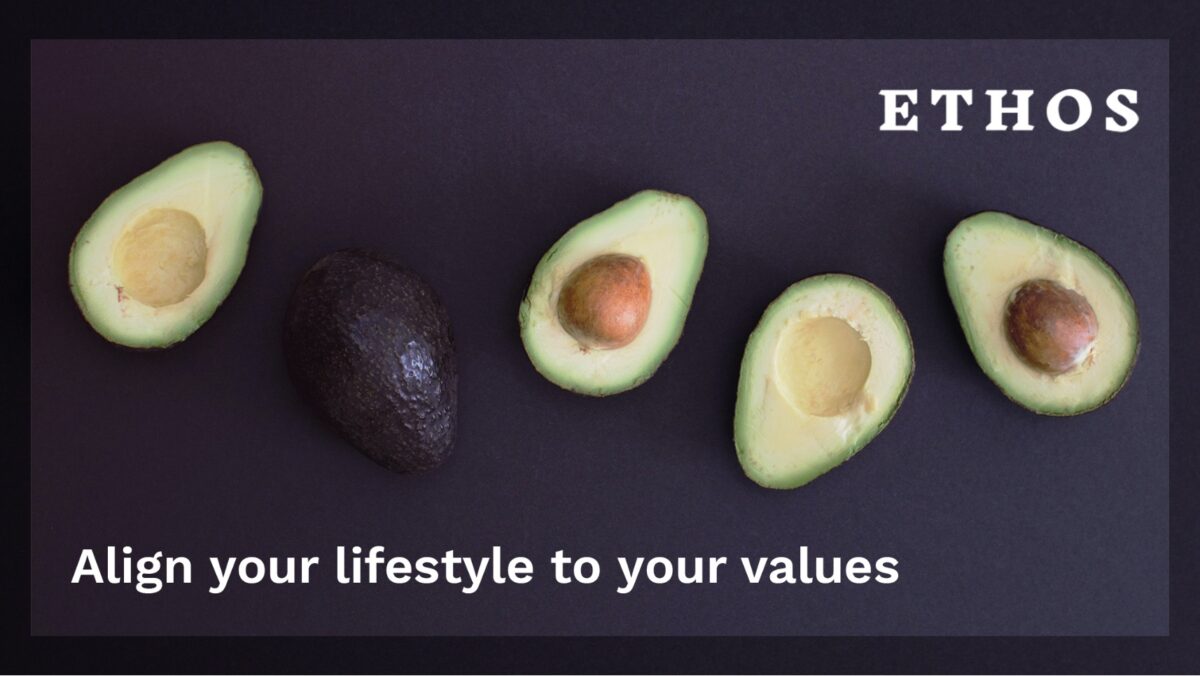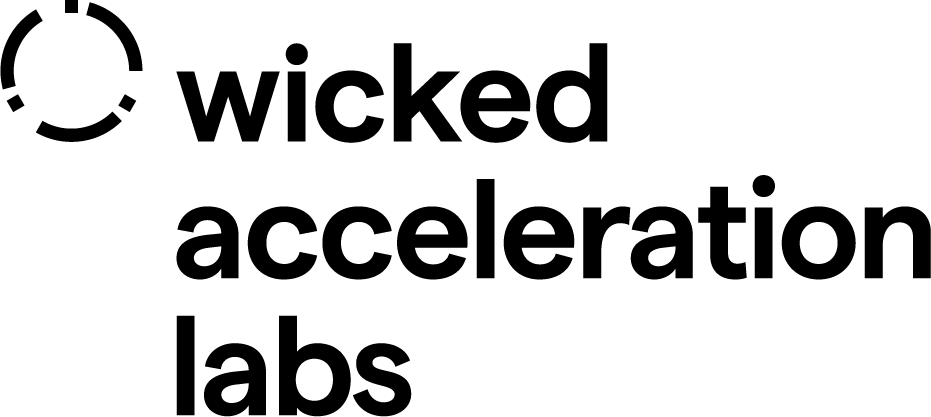
Ethos learns, tracks and guides people’s behaviours to help them live more in line with their values and beliefs.
What is the problem
Many people feel strongly about their values and want to be able to live in a way that supports those values and doesn’t unknowingly contradict them. Unfortunately, buying almost anything and engaging in many services can embroil people in vast globalised supply chains and complex ethical dilemmas about anything from labour rights to climate change. This makes it increasingly hard to live in alignment with what people believe, or for the ‘free market’ to be influenced by what people actually want.
How Ethos responds
Ethos decodes and quantifies the ethical implications involved in the purchase of products and services through advanced global blockchain supply chain tracking. It then compares the values of the product to your priorities to see which options suit you best. You have access to all the information, so you can see how each suggestion is made and adjust your preferences until Ethos is fully aligned with what you believe. Once you are in alignment, Ethos can begin to make assumptions about what is right for you. Alternatively, you can select ethical guides, who are people or organisations whose values you trust, and can highlight ethical conflicts and direct your Ethos
Codify your values:
Through conversation and the tracking of people’s purchases and activities, Ethos can codify people’s values.
See the ethics behind products and services:
Just by scanning a product, Ethos can recognise whether a product clashes with someone’s values or whether it supports them.
Recommendations help you align with your ethos:
Ethos goes beyond just information, it can make the best recommendation for someone by balancing all of their prioritised values. For instance, it can propose someone to purchase non-organic tomatoes from a local shop rather than organic ones from a superstore because the environmental impact of the air-miles may be more of an issue for that person than the use of some pesticides.
Ethos also gives people the option to choose ethical ‘guides’ who are people and organisations whose ethics the user trusts. The ethical guides can make recommendations and highlight new issues to their followers and subsequently enable new types of activism through collective micro-actions —like joining a boycott.
See how well you are aligned with your values:
Ethos tracks people’s behaviour over time and allows them to see clearly how their values align with their everyday actions. This can either support them to align more or help them recognise values that aren’t as important to them as they previously thought.
Update your Ethos and check the facts behind the things you read:
Ethos stays updated with the latest science.When people read something new that makes them question the ethics of a product, they can also let Ethos know it’s important to them and fact-check it against their records. This allows Ethos to prevent fake news and stay up-to-date with what’s important to users and what’s happening in the world.
What we
learnt
We demonstrated a low fidelity prototype of Ethos to high-need users and this is what we learned:
- Many of the users we spoke to responded to this proposition with excitement at the potential to alleviate the burden of decision-making while also maintaining their responsibilities as ethical consumers.
Emerging areas of interest are about:
- the legitimacy of the service provider’s authority and how necessary it is; and,
- the discussion about the capacity and responsibility people have to engage with the politics of their actions.

Authority
One of the main discussions around the service was about who had the authority to initiate it and make judgements about the veracity of ethical claims about products and services. Who has enough neutral respect and authority in the public eye that could administer these judgements without fear of corruption or bias? This question ultimately unveils the need for someone to design algorithmic assessments, which would ‘solve’ ethical dilemmas at a global scale —people felt uneasy about where that responsibility is placed.
This question of authority goes even further when we consider the implications of the ‘ethical guides’ in Ethos. The idea that popular organisations, companies and individuals can intervene and nudge people’s actions at such a granular level, allows for huge new power amongst collectives wanting to act on the world. Large companies may be forced to comply with any widely held values of their customers. Who is to question the legitimacy of ethical standpoints?
This may seem like a simple extension of the role of an instagrammer or sponsored celebrity, but it could ultimately instill ethical decisions way beyond daily life and possibly create divisions between people in a potentially harmful way.
Enriching and expanding the politics of life
People found the concept of learning about the implications of everything appealing because it meant that the politics of everyday life could become more real and actionable. If buying a particular snack for lunch aligned you with a set of values, in the same way as buying a particular newspaper voting for a different leader, then you could feel more proactive and engaged as a citizen.
Financial capacity to be ethical
One criticism of the service is that it places all the responsibility of an ethical society in the hands of the consumer. Some participants felt the service could only be used by wealthy people because ‘it costs money to be ethical’ and would make people with less money feel bad.
There is an argument to be made that a service like this would still help people use ethics to discern between products, even if they have low economic power, and if it were the case that the range of products available to less wealthy people were all similarly unethical (or misaligned to some people’s values), then there is still more opportunity for people to act collectively based on the increased knowledge of a products ethics, than if there were no transparency.
That said, the service does seem to make a judgement in its assessment of the alignment between your values and how you act —it essentially questions how ‘true’ you are to your beliefs. This judgement is offensive and must either become neutral or be weighted by people’s capacity to purchase ethically, so that it would not be seen as a callous willingness to compromise to save money.
Responsibility vs Ease
Users also felt that there was an interesting conflict within the service. The idea that the service understands you, learns what is important to you and recommends you alternatives based on that logic or based on an ‘ethical guide’ means that you can detach yourself from the complexity and burden of each decision. On the other hand, the fact that there is so much information available about the implications of each action means that you could dig deeper into any decision.
Users felt that by handing over decision making responsibilities you could live aligned to your values without the impossibly huge level of assessments that it would take to decide these things manually. However, people should regularly engage with these decisions because the world would change, new information emerges and people’s beliefs change. So, for someone to be decoded and then follow that prescribed course indefinitely would be an abdication of responsibility.
Our new direction of exploration
If this proposition is progressed, the strategic question of relevance to our investigations is more along the lines of:
What scope is there for tech-enabled ethical decision making and how can it be harnessed to safely empower consumers to shape the world?

Related to ‘Ethos’

Proposition Types
Ethics Providers
Platforms as facilitators and brokers of value judgements. It’s possible that in the future we could foresee an advancement of AI with the ability to codify and model the highly complex ethical parameters of everyday life.








